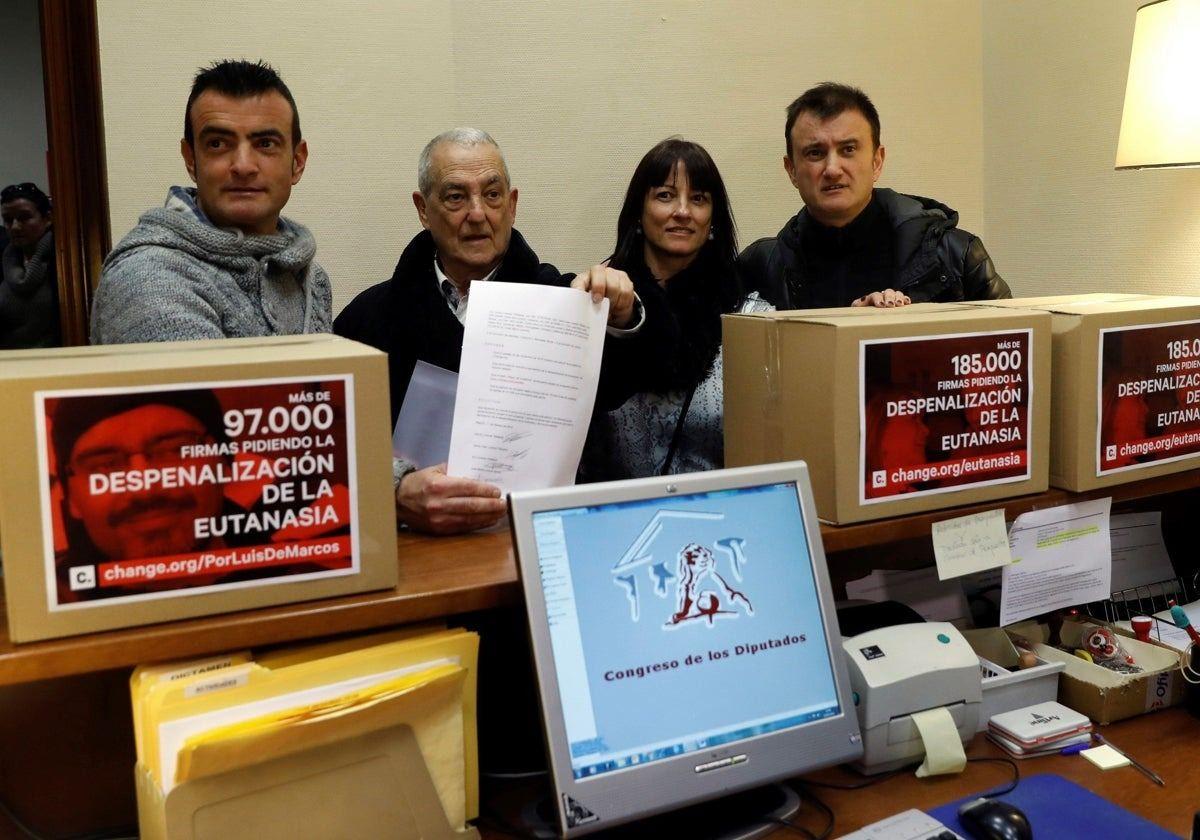Quarter of people requesting euthanasia die while their appeal is being processed
Some 1,300 patients have obtained medical assistance for a dignified death in the four years since the law's approval
Just four years after the euthanasia law came into force in Spain, figures show that, although this right is becoming more and more established, the degree of application differs greatly depending on the political spectrum of the region where the request was issued. In addition, the maximum deadlines for obtaining a response to the request from the responsible authorities are not being met.
Derecho a Morir Dignamente (DMD) - the association of families and professionals who pushed for the law to be created - estimates that since 25 June 2021 some 3,000 seriously ill and incurable patients or those with a serious and incapacitating chronic condition have requested euthanasia in Spain, but only around 1,300 have had their wish granted. Excluding the 6% or so who back out or postpone once the request has been authorised, the gap between authorisations and exercised wishes is due to what is one of DMD's main complaints: 25% of petitioners die before doctors and the health administration are able to complete the processing of their request.
Association Derecho a Morir Dignamente demands compliance with the 30-day period set by the law for resolving the petition, but the reality is that the usual waiting time is at least 49, with a delay of 60% of the cases
According to the law, the deadline for processing the request should be no longer than 30 days. This is the maximum time that the law deems necessary for the decision to be taken by the doctor who receives the request, the second doctor who reviews whether the case complies with the law and for the report to be released by the regional decision-making body.
However, the current average time between request and response in Spain is 49 days and even longer in some regions. DMD spokespersons state that these processing times are "excessive and unacceptable for people in a terminal situation". For this reason, the association calls for guaranteeing applicants the right to initiate the process with a doctor within a maximum of two or three days. Added to that, DMD believes that the training of professionals should be improved.
DMD vice-president Fernando Marín summed up the situation in the country, stating that "euthanasia is making its way in Spain, but very slowly and with many inequalities between regions". He recognised the undeniable hold of the law, as demonstrated by the fact that in 2024, 960 applications were submitted (25% more than a year earlier) and 427 euthanasias were performed (28% more in 2023). This is a continuation of the progress recorded two years ago, when there were 33% more requests and 16% more euthanasias than in 2022.
The number of assisted dignified deaths in Spain is rising year after year, although there is still a long way to go before the country reaches other European states, where assisted death has been legal for a while. According to DMD, the aid does not work adequately throughout the country, as the Ministry of Health states. Marín called for "political will" to reduce the inequality between different regions and urged private healthcare to follow the law, since their number of euthanasia cases is very low. He said private providers often refuse to perform them and instead refer patients to the public system, which handles over 90% of the cases.
Call for legislative changes to prevent ultra-Catholic organisations from paralysing doctor-authorised euthanasia in court
DMD spokespersons called for legislative changes to prevent the paralysis in court of euthanasias approved in accordance with the law, as has happened with Noelia and Francesc - two residents of Barcelona who have been unable to exercise their wish despite having the green light from doctors for ten months. In both cases it was the parents, represented by ultra-Catholic organisations, who managed to halt the assisted death process against their children's will, even though Noelia and Francesc are the sole holders of the legal right to euthanasia and are mentally competent to make the decision. The Supreme Court will now have to establish jurisprudence on this issue, as the regional government (Generalitat) has appealed in cassation against one of the court rulings.
"These two people requested assisted death, which was approved, but they are being forced to live against their will by the judicial appeals filed by their relatives, in a euthanasic context of loss of dignity due to the irreversible deterioration of their quality of life and constant and intolerable suffering," said the association, denouncing that justice "lends itself to the manipulation of groups that seek to impose their ideology against a democratically approved law."

